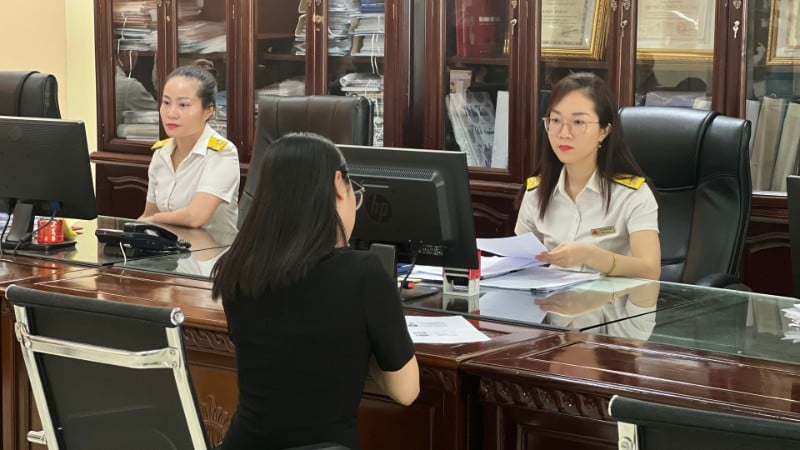
Over the years, the Party and the State have consistently advocated building a modern, transparent, and fair tax system, creating a favorable environment for businesses and promoting sustainable economic growth. However, the implementation of new policies always has a certain delay, requiring management agencies to promptly listen to feedback from the grassroots and proactively make adjustments to suit the actual situation. Law on Value Added Tax No. 48/2024/QH15, passed by the National Assembly on November 26, 2024 and effective from July 1, 2025, is an important document in perfecting tax policies, but in the process of preparing for implementation, many shortcomings have been exposed, especially in the fields of agriculture, animal feed exports and tax refund conditions.
Major shortcomings from the practice of agricultural production and export
According to the provisions of Law No. 48/2024/QH15, enterprises must pay 5% input value-added tax on agricultural products purchased and sold through the commercial stage, and then receive a tax refund when exporting. The amount of value-added tax collected and then refunded for items whose production output is mostly for export (such as catfish, pepper, coffee, etc.) leads to a waste of time and capital stagnation for enterprises while credit institutions do not disburse this tax when providing working capital, causing financial pressure and reducing business efficiency. Especially in the context of the economy being heavily impacted by natural disasters, especially storms and floods in many large production areas, having to rotate thousands of billions of VND in value-added tax to wait for refunds makes it impossible for enterprises to proactively source capital for purchasing, processing and exporting.
Industry associations have clearly reflected this situation. According to estimates from a number of industries in the agricultural sector, in the last 6 months of 2025 alone, the 5% value added tax that coffee businesses must temporarily pay is estimated at VND5,000 billion; the food industry at VND2,016 billion; the pepper and spice industry at VND2,162 billion. These are all key export industries with large inventories and require fast capital turnover.
In addition, current regulations also create inequality between domestic and imported goods. Imported agricultural and aquatic products are not subject to value-added tax when entering Vietnam, while domestic goods are subject to tax at the commercial stage. This increases the costs of domestic enterprises, creates advantages for imported goods and negatively impacts domestic agricultural production, which is already heavily affected by natural disasters.
An equally serious shortcoming is the tax policy applied to animal feed. Because animal feed is not subject to tax, it is not deductible or refunded for input value added tax, leading to increased costs and selling prices for animal feed production enterprises, which will affect livestock farmers. In addition, this regulation does not ensure fairness and may reduce the competitiveness of imported animal feed products because imported animal feed is not subject to value added tax, which is a significant disadvantage for domestic enterprises.
Another major problem that businesses have reported is that the VAT refund condition requires the buyer to be refunded only when the seller has declared and paid taxes. In practice, when exporting, businesses are refunded input VAT, but are delayed because they have to wait to determine whether the seller has declared and paid taxes, causing difficulties and risks for businesses requesting tax refunds. Because businesses requesting tax refunds do not have legal or technical tools to check the seller's tax compliance status at the time of preparing tax refund dossiers. This regulation has also been reported by a number of organizations and individuals as being inconsistent with the responsibilities of each entity, because the buyer and seller are different entities and must bear separate and independent responsibilities.
The delay in processing tax refund dossiers has many consequences: cash flow is stagnant, business plans are disrupted and businesses face difficulties in implementing export contracts. In the context of agricultural exports needing strong support from the State to maintain growth and expand markets, continuing to maintain this regulation may cause many businesses to lose the opportunity to compete.
Amending the law under the simplified procedure with 3 key groups of amendments .
Faced with the above-mentioned difficulties, on the basis of listening to and seriously studying the reflections and recommendations of Associations, enterprises and the Ministry of Agriculture and Environment, along with the serious impact of storms and floods on agricultural production in many areas, the Ministry of Finance determined that it is necessary to amend and supplement a number of contents of the Law on Value Added Tax No. 48/2024/QH15 to contribute to overcoming the consequences and ensuring stable production and business activities.
Article 26.2 of the Law on Promulgation of Legal Documents allows the submission of laws at the ongoing National Assembly session if the issue arising from practice is urgent. The application of the simplified procedure in this case demonstrates the Government's flexibility and timeliness in handling policy issues that directly affect socio-economic life.
On November 26, 2025, the Minister of Finance, authorized by the Prime Minister, signed Submission No. 1090/TTr-CP to the National Assembly and the National Assembly Standing Committee, requesting consideration and approval of the Draft Law amending and supplementing a number of articles of the Law on Value Added Tax. The amendment of the law is determined to ensure the dual goal: removing difficulties for businesses, while ensuring compatibility and consistency between current legal documents.
This draft Law focuses on three core contents. Firstly, it reinstates the regulation that input value added tax is not required to be declared and paid, but is allowed to be deducted for products of crops, forests, livestock, aquaculture, and fishing that have not been processed into other products or have only undergone normal preliminary processing and are traded through the commercial stage.
With this regulation, enterprises do not have to pay 5% input value added tax on agricultural products purchased and sold at the commercial stage, overcoming the situation of VAT being collected and then refunded for goods whose production output is mostly for export such as catfish, pepper, coffee, etc., which are currently Vietnam's export strengths, helping to reduce financial pressure and increase business efficiency for enterprises.
Second, adjust the value added tax policy for products of crops, forests, livestock, aquaculture, and fishing that have not been processed into other products or have only undergone normal preliminary processing and are used as animal feed to comply with the provisions of the law on animal feed. With this amendment, animal feed production and trading establishments do not have to pay the above 5% value added tax, enterprises will reduce production costs, thereby increasing their competitiveness with imported animal feed products.
Third, remove the condition requiring the buyer to only be refunded when the seller has declared and paid taxes. Removing this provision will help shorten the tax refund time, and tax refunds for export establishments will be carried out according to regulations without having to wait for it to be determined that the seller has declared and paid taxes.
The draft Law amending and supplementing a number of articles of the Law on Value Added Tax is a strategic step, demonstrating the Government's determination to improve tax policies in the direction of supporting businesses, ensuring fairness between domestic and imported goods, and at the same time creating conditions for agricultural production to recover after natural disasters. This amendment also demonstrates the proactive spirit of the management agency in grasping reality and promptly adjusting policies to suit the needs of the economy in a period of many fluctuations.
Source: https://nhandan.vn/sua-luat-thue-gia-tri-gia-tang-go-diem-nghen-tu-thuc-tien-post926455.html








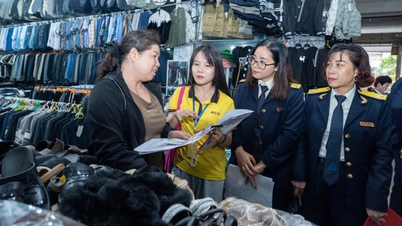
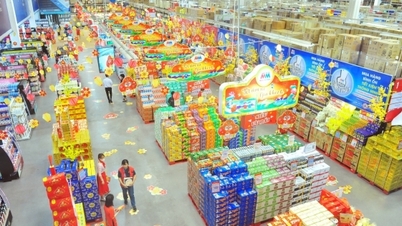




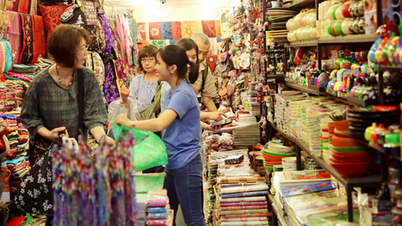

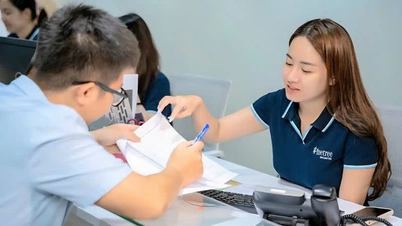




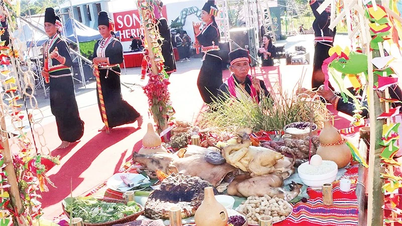

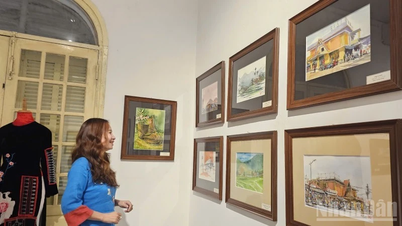
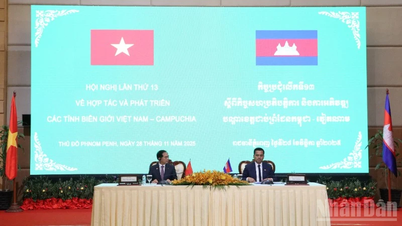
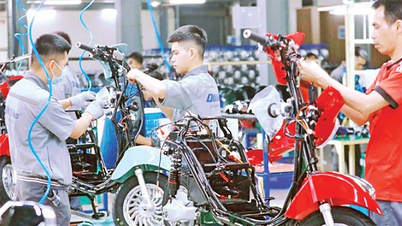
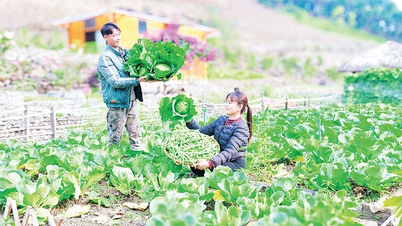



















































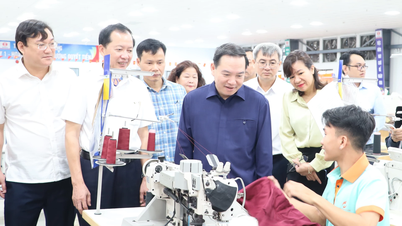

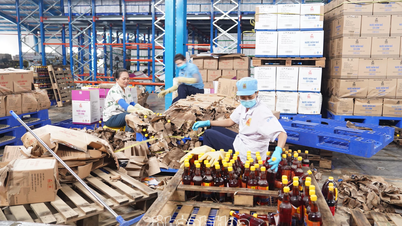


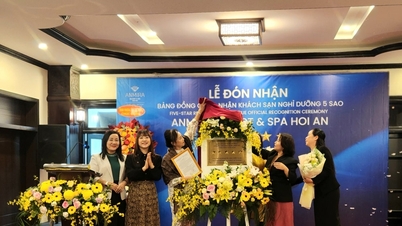













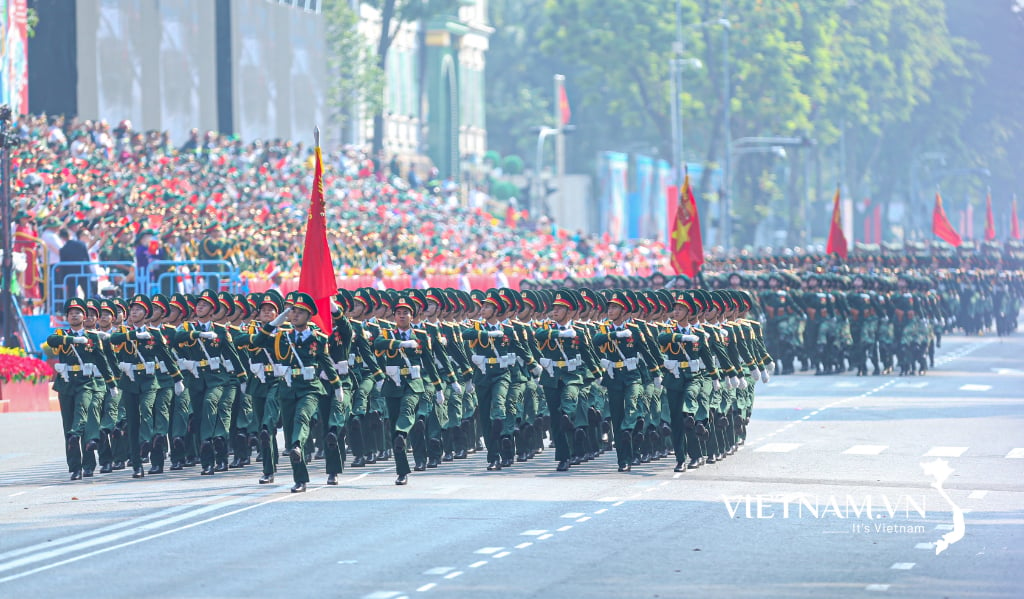


Comment (0)